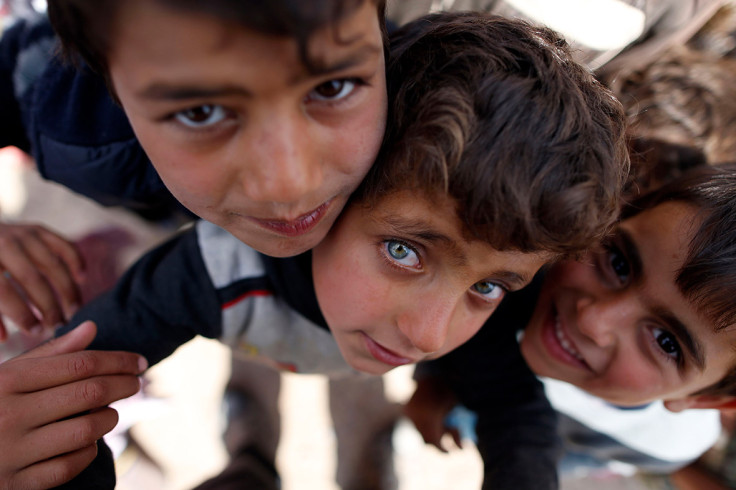US-led coalition air strikes that killed scores of civilians in Mosul was targeting Isis car bomb
The coalition announced an investigation into the incident as thousands of civilians flee the embattled city.
A bombing that killed scores of civilians in western Mosul was blamed on an Isis car bomb targeted by the US-lead coalition air strike.
The Iraqi military has commented on the coalition statement about reports of air strikes hitting civilian areas in the al-Jadida neighbourhood on 17 March. It caused around 200 casualties according to local officials.
According to Colonel Muntathar Al-Shamari, the head of Iraqi counter-terrorism units, the military had asked the US-led coalition to target an Isis car bomb. "When the (vehicle) was struck, it exploded, destroying one or two of the houses next to where families were hiding," he said, CNN reported.
The Iraqi commander dismissed the reported 200 death toll as an exaggeration, although the figure was confirmed by Bashar al Kiki, chairman of the Nineveh Provincial Council, who however did not provide any further detail.
In a statement released on 25 March, the Combined Joint Task Force-Operation Inherent Resolve (CJTF-OIR) addressed allegations of civilian casualties. "At the request of the Iraqi security forces, the coalition struck Isis fighters and equipment, March 17, in west Mosul at the location corresponding to allegations of civilian casualties," the statement read.
The CJTF-OIR daily strike release for 17 March noted that an Isis car bomb was destroyed as part of four strikes in Mosul, which also hit 25 fighting positions, five rocket-propelled grenade systems, two medium machine guns, two mortar systems and 56 vehicles.

According to the Guardian, at least 150 people are thought to have been killed either in the bombing or as a consequence of lack of a timely rescue operation. This included at least 80 who died having sought shelter in one of the neighbourhood's largest houses, in which local families would group to seek refuge. "There is no civilian defence, no rescue teams. It is only us and our hands. Everyone has to fend for themselves," local resident Assad told the British newspaper.
Iraqi Vice-President Osama al-Nujaifi, who is from Mosul, put the death toll as "hundreds" and described the incident as a "humanitarian catastrophe," in a statement issued on his website and quoted by the Associated Press. He blamed the US-led coalition air strikes and excessive use of force by militarised Federal Police forces, calling for an emergency parliamentary session and an immediate investigation into the incident.
The US-led coalition has also promised to investigate the attack and the Iraqi government temporarily suspended air strikes as a consequence of the bombing. They resumed on Sunday (26 March).
Civilian casualties in the embattled city continue to increase as Isis rockets targeted a market in east Mosul on Sunday, killing at least 16 people, according to a military source quoted in the Turkish state news agency Anadolu.
The eastern part of Iraq's second largest city was declared "liberated" from the militants presence on 18 January. The offensive to liberate the more densely-populated western part of the city was launched a month later and as many as 150,000 people have been displaced from west Mosul since, aid agencies reported.
#Mosul_Update: Another 7,332 IDPs displaced from #West_Mosul Yday. A total 24,887 families (149,322 individuals) in last 30 days. @DTM_IOM pic.twitter.com/xNlg6UvmMV
— IOM Iraq (@IOMIraq) March 26, 2017
Despite the fear of sleeper cells hiding among the civilians, the US-led coalition is confident Isis' days in Iraq are numbered. "Right now, the offensive is going very well," Brigadier General Matthew Isler, a deputy commanding general for CJTF, told Sky News.
"The Iraqi security forces are making continuous progress and Daesh [an Arabic acronym for Isis] is fighting very hard to resist but they are unable to deny the Iraqi security forces their objectives. So we are witnessing the defeat of Daesh."
© Copyright IBTimes 2025. All rights reserved.





















